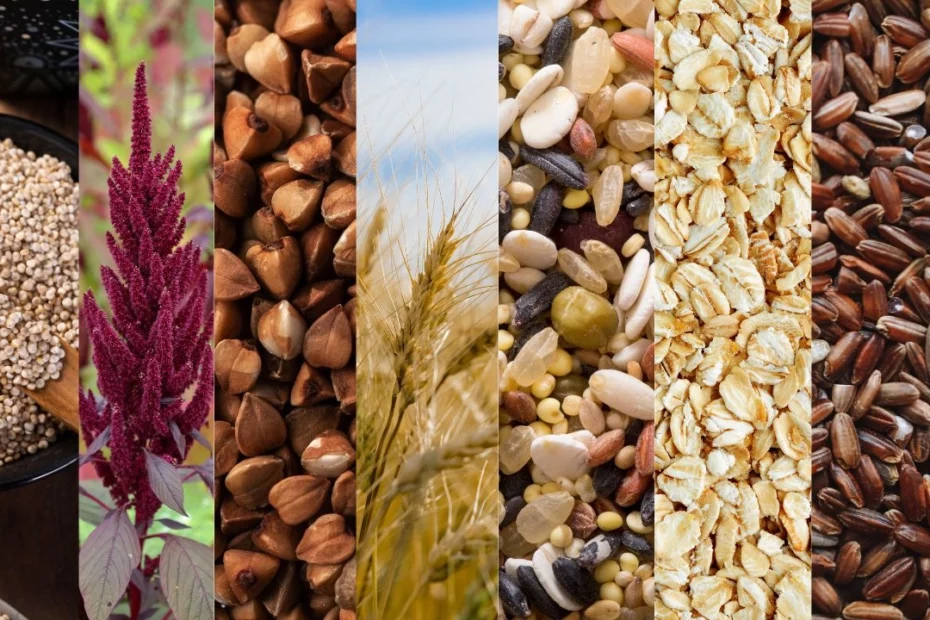An essential macronutrient for human health and function, Protein is a necessary component of many foods. It contributes to many essential functions, such as nutrient delivery, immune system operation, generation of enzymes and hormones, and tissue construction and repair. Amino acids, which are the building blocks for cells, tissues, and organs, make up protein. The body may suffer from shortages, weakened immunological response, muscle atrophy, and decreased growth and development if there is insufficient protein intake. Knowing the value of protein helps guide our dietary decisions and promote our general health and wellbeing.
Why is Protein Important for You?
A key macronutrient, protein serves a number of vital functions in the body. Here are a few roles that signify the importance of proteins:
- Building and repairing tissues: The body’s tissues need protein to grow, remain healthy, and be repaired. It is an essential part of bones, skin, hair, nails, muscles, and organs.
- Production of enzymes and hormones: Many enzymes and hormones are proteins that control a variety of bodily functions, including metabolism, digestion, and immunological response.
- Immune System Function: Proteins called antibodies are essential for the proper operation of the immune system. They aid in the body’s defense against pathogens and defense against illnesses and infections.
- Nutrient storage and transportation: Specific proteins serve as transporters for the body’s many nutrients, including vitamins, minerals, and oxygen. Additionally, proteins can store necessary chemicals for later use.
Why does Vegan Diet Lack Protein?
Vegan diets can potentially lack protein if they are not properly planned and balanced. This is because many traditional protein sources, such as meat, poultry, fish, and dairy products, are not consumed in a vegan diet. Plant-based protein sources tend to be lower in certain essential amino acids compared to animal-based sources. However, with careful planning and a diverse selection of plant foods, it is entirely possible for vegans to meet their protein needs. Incorporating a variety of protein-rich plant foods such as legumes, soy products, whole grains, nuts, and seeds into meals can help vegans ensure they obtain sufficient protein for optimal health. Additionally, consulting a registered dietitian or nutritionist can provide valuable guidance in creating a well-balanced vegan meal plan that meets individual protein requirements.
Plant-Based Protein Sources for Vegans
Here are seven top grains-based sources of plant protein for vegans:
- Quinoa: Quinoa has all nine of the essential amino acids, making it a complete protein. Additionally, it has a lot of magnesium, iron, and fiber.
- Amaranth: Amaranth is an additional grain with a complete protein. It also offers fiber, calcium, iron, and lysine, an important amino acid.
- Buckwheat: Despite its name, buckwheat is gluten-free and unrelated to wheat. Along with fiber, magnesium, and antioxidants, it provides a decent quantity of protein.
- Barley: Barley is a multipurpose grain that is high in fiber and protein. Additionally, it offers a variety of vitamins and minerals, including manganese, selenium, and niacin.
- Millets: The gluten-free grain millet is frequently consumed as a staple diet around the world. It contains plenty of protein, fiber, B vitamins, and minerals including phosphorus and magnesium.
- Oats: Oats are a well-liked grain with a reputation for being strong in fiber, but they also contain a respectable amount of protein. In addition, they are an excellent source of zinc, magnesium, and iron.
- Brown Rice: A complete grain with a considerable quantity of protein, brown rice. Additionally, it has a lot of fiber, B vitamins, and minerals including selenium and manganese.
Other Sources of Plant- based Protein
Vegans can have a wide range of protein-rich options beyond grains to meet their nutritional needs. Legumes, such as lentils, chickpeas, and beans, are excellent plant-based protein sources. They are not only rich in protein but also provide essential fiber and minerals.Nuts and seeds, such as almonds, walnuts, chia seeds, and hemp seeds, offer both protein and healthy fats.
Soy-based products like tofu, tempeh, and edamame are versatile protein sources widely used in vegan diets. Additionally, plant-based protein powders derived from sources like pea, rice, or hemp can be used to supplement protein intake. Incorporating these diverse plant foods into meals and snacks can help vegans obtain a well-rounded protein intake.

